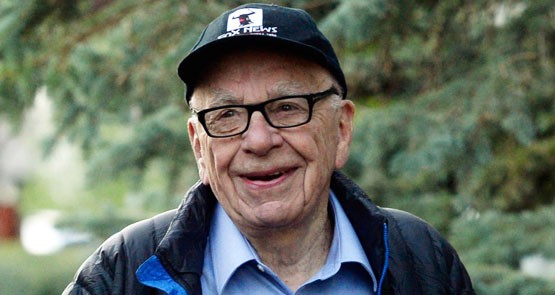
The media’s financial glory days may be over, but when it comes to wielding power in Australia one of your best bets is still running a media empire, editing a newspaper or writing a regular column. Eight media men — and, yes, they are all blokes — feature on Crikey‘s annual Power 50 list, which ranks our most influential Australians and predicts whether their clout will rise or fall over the next year.
Even for an industry changing at a dizzying speed, power in the Australian media is in a special state of flux. Channel Nine is preparing to float on the stock exchange, News Corp Australia is shaking itself off after its doomed Kim Williams experiment, and the federal election result has upended the chess board.
Last year, then-communications minister Stephen Conroy and local News boss Kim Williams both featured in our top 10. Now they are nowhere to be seen. Conroy’s party tumbled out of power following his botched attempt at media regulation; Williams was forced to step down after his cost-cutting pissed off key editors and, eventually, Rupert Murdoch. His successor Julian Clarke doesn’t make the list this year: it’s too early to tell if he’s a substantial figure or a stop-gap.
Herald Sun attack dog Andrew Bolt remains on the list at number 47, far lower than last year. Bolt still has the most-read column in the land, his own TV show and a wildly popular blog. But, as columnists Mike Carlton and Janet Albrechtsen recently told Crikey, opinion writers often have more influence when their side of politics is out of power. Bolt played a crucial role whipping up opposition to the carbon tax; how will he fare under the Coalition?
One place above Bolt is Greg Hywood, who is trying to transform Fairfax from a fading print powerhouse into a digital leader. He’s slashed staff, shut down iconic publications, and just last week poached Tourism Australia’s CEO to run Fairfax’s events business. Fairfax still employs some of the country’s finest journalists so Hywood’s decisions about what to cut and what to keep will have impacts far beyond the company’s share price.
Reclusive Seven West Media chairman Kerry Stokes is on the list at 34 thanks to his control over the Seven Network, Pacific Magazines and The West Australian. Stokes would soar higher if he was more interventionist proprietor.
Communications minister Malcolm Turnbull shoots into the list at 28. Turnbull has already overhauled the Coalition’s National Broadand Network policy and demanded the resignation of all the NBN’s board members. Now he’s in charge of delivering broadband faster and cheaper than under Labor’s scheme. The only catch is he’s more popular outside his partyroom than inside it.
Being influential isn’t just about holding an authority position now — it’s about where others perceive you to be going. Just ask any “lame duck” president or CEO. That’s why Lachlan Murdoch features so highly in our list at number 25. As chair of Network Ten and DMG Radio, Lachlan’s a power in his own right (albeit one with notably mixed results). But, even more importantly, he has re-emerged as father Rupert’s heir apparent following brother James’ disastrous handling of the UK phone-hacking scandal.
ABC managing director Mark Scott stars at number 24. At a time when other media outlets are cutting back, Scott has expanded the ABC’s offerings — think iView, News 24, a new fact-checking unit — and the ABC is now the biggest employer of journalists in the country. But the days of Labor largesse are over. The Coalition has promised not to slash ABC funding, but no one, including Scott, expects big funding boosts.
By virtue of running the noisiest, most aggressive newspaper in the land, Daily Telegraph editor Paul Whittaker nabs a prominent spot on our list. The Tele made life a living hell for Labor — but did not produce the big swings in Western Sydney many expected.
At number six, still shining bright, is Sun King Rupert Murdoch. Yes, the phone-hacking scandal has damaged his company’s reputation; yes, his newspapers are bleeding revenue and circulation. But until the News Corp/21st Century Fox boss falls off the twig or steps down — neither of which appear likely to happen soon — Murdoch’s position as the most powerful media figure in the land appears unshakeable.







Crikey is committed to hosting lively discussions. Help us keep the conversation useful, interesting and welcoming. We aim to publish comments quickly in the interest of promoting robust conversation, but we’re a small team and we deploy filters to protect against legal risk. Occasionally your comment may be held up while we review, but we’re working as fast as we can to keep the conversation rolling.
The Crikey comment section is members-only content. Please subscribe to leave a comment.
The Crikey comment section is members-only content. Please login to leave a comment.